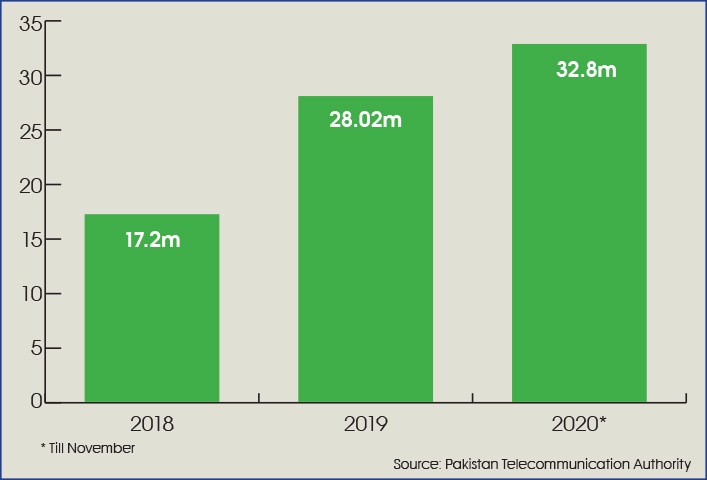ISLAMABAD: The legal mobile phone imports increased by more than 90 per cent since the implementation of Device Identification Registration and Blocking System (Dirbs) in 2018.
The Pakistan Telecommunication Authority (PTA) announced that the import of mobile devices via legal channels increased to 28.02 million sets in 2019 from 17.2m in 2018, while thus far in the ongoing calendar year 2020 more than 32.8m devices have been imported.
The PTA said that 175,000 devices have been blocked based on their IMEI number that were reported stolen through Dirbs, adding that the system has also identified and blocked 24.3m fake or replica mobile devices and 657,645 IMEIs which were cloned or duplicated, since the Dirbs system began.

The PTA has also said that successful execution of the system has led to establishment of 29 local smartphone assembly firms while smuggling and inflow of cheap sets have been contained.
These facilities have produced over 20m devices since 2019 with over 1.5m 4G smart phones, the PTA claimed, going on to say that “the implementation of Dirbs has been a catalyst for local mobile devices manufacturing” and that it can lead to unlocking the potential for making Pakistan a hub for mobile handset exports.
Meanwhile, since the implementation of Dirbs, the Federal Board of Revenue (FBR) has also collected a total of Rs90 billion in custom duties during the period between Jan 2019 to Nov 2020, the PTA said.
Moreover, the FBR has collected Rs9bn under the individual category.
In June of this year the government announced a Mobile Device Manufacturing Policy (MDMP) to provide incentives to local assemblers. Some assemblers currently operating under this policy, or those about to make entry, have voiced concerns on lingering issues that remain unimplemented under the policy.
Pakistan has 169 million cellular subscribers, according to PTA data, of whom 85mn are 3G/4G subscribers. 3mn are basic telephony subscribers and 85mn more are broadband subscribers. The data is as of August 2020.
Speaking to Dawn on background, they said the localisation requirement in the policy is not possible to implement in Pakistan since screens, motherboards and batteries are not going to be possible to manufacture here.
The policy also assured “removal of Fixed Sales Tax on CKD/SKD manufacturing of mobile devices” as well as exemption from 4 per cent withholding tax on domestic sales of locally assembled devices, but industry players say implementation of these steps has still not been completed.
Published in Dawn, December 10th, 2020














































